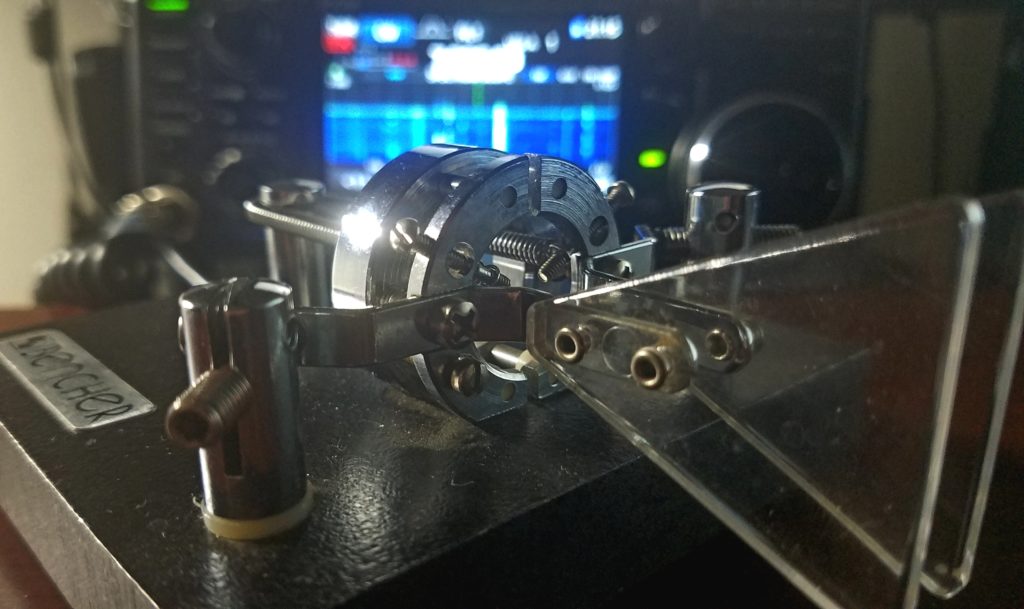As a scientist, I like learning something new every day. I also try to keep my brain fit, and one of the ways of doing so is to learn new languages. After I devoted two years to Polish (I never became fluent, but at least I can read and understand it reasonably well) some 7 years ago, I never motivated myself to try learning another one.
As an amateur radio operator, however, I decided to learn the Morse code that will open for me another mode of operation: continuous wave, or CW. Even though not a different language, rather an alphabet, it takes some time to get used to a paradigm of not counting dits (shorter signals) and dahs (longer ones) – but learn to recognize their combinations as sounds of letters.

After all, it took me about a month to learn the code – I used the famous Koch method with Farnsworth timing, and Learn CW Online was a great resource for that matter. I still use it in hopes to improve my copying speed. But one can only do so much without real practice! If you remember your first steps on the air, you will recall that hesitation and doubt about your abilities to send and copy (or to simply speak in the microphone “correctly”!). Whenever I tuned in to the CW portion of the HF bands, I heard supersonic speeds that people used in their QSOs – and turned the knob up to the phone portion.
It all changed about a week ago, when somebody mentioned the “beginner’s fear” of operating CW in the Parks on the Air chat, related to the use of CW in park activations. I joined the discussion, and shortly after Eric KKØECT stepped in to share his experience of starting on CW a few years ago, and offered help to those making their first steps. We had a quick chat, and scheduled the first attempt for tonight.
Time has come, and we agreed about the frequency that we will use for the contact. I could copy Eric’s signal loud and clear – but he could not hear me at all. After some troubleshooting (he has the same transciever that I use), he suggested a parameter that I should check – and that was the solution (always good to have an advice of an experienced colleague!). We had a nice conversation, even though I probably missed half of it due to constantly falling behind in copying his messages. I will be honest – it was stressful, but it was a lot of fun at the same time! And it made a great difference having a fellow ham who offered his help in making this first step, was expecting plenty of mistakes, and graciously slowed down to my speed to let me copy at least something 🙂 When you have a bad experience on the first time of doing something – it may discourage you and turn you away from doing it again. In my case, I am lucky to have made my first contact with a person who understood and supported me, and I am motivated to practice more and keep improving! Thanks Eric, and 73!